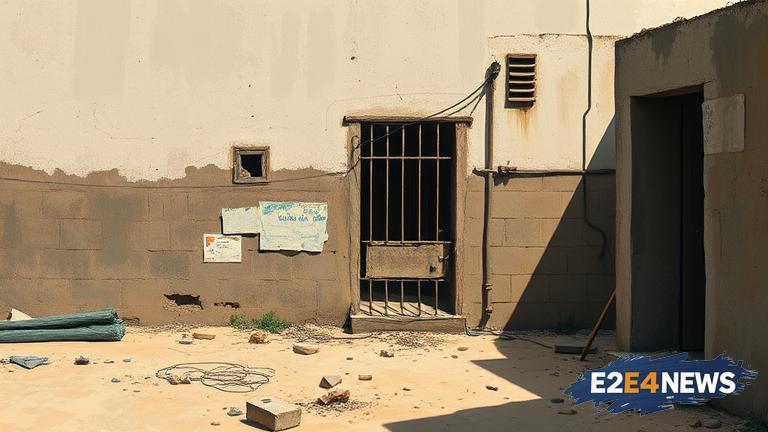The plight of Palestinian prisoners in Israeli jails has been a longstanding issue, with many facing harsh conditions, including medical neglect, solitary confinement, and limited access to basic necessities. Despite international condemnation, the Israeli authorities continue to detain Palestinians, often without charge or trial, under the guise of security concerns. The conditions in these prisons are dire, with prisoners often subjected to overcrowding, poor sanitation, and inadequate healthcare. Many prisoners have reported being denied medical treatment, leading to severe health complications and even death. The use of solitary confinement is also widespread, with prisoners often being held in isolation for extended periods, causing significant psychological damage. The Israeli authorities have been accused of using these tactics as a means of breaking the spirits of Palestinian prisoners and suppressing their resistance to the occupation. The situation is further complicated by the fact that many Palestinian prisoners are being held in prisons located inside Israel, making it difficult for their families to visit them. The Israeli authorities have also been accused of imposing restrictive measures on prisoners, including limiting their access to education and recreational activities. The international community has been vocal in its condemnation of Israel’s treatment of Palestinian prisoners, with many calling for their immediate release. The United Nations has also weighed in on the issue, criticizing Israel’s use of administrative detention and calling for an end to the practice. Despite these efforts, the situation on the ground remains dire, with many Palestinian prisoners continuing to face harsh conditions and human rights abuses. The Palestinian Authority has also spoken out on the issue, calling for international intervention to secure the release of Palestinian prisoners. The issue of Palestinian prisoners is a highly emotive one, with many Palestinians seeing their detention as a symbol of the occupation’s brutality and oppression. The Israeli authorities, on the other hand, view the prisoners as a security threat, and have shown little willingness to compromise on the issue. As the situation continues to deteriorate, there are growing concerns about the impact on the mental and physical health of Palestinian prisoners. Many prisoners have reported experiencing depression, anxiety, and post-traumatic stress disorder, while others have been diagnosed with serious medical conditions, including cancer and diabetes. The lack of access to medical care has been particularly devastating, with many prisoners being denied treatment for chronic conditions. The use of solitary confinement has also been shown to have a profound impact on prisoners’ mental health, with many experiencing hallucinations, paranoia, and suicidal thoughts. In recent years, there have been several high-profile cases of Palestinian prisoners being released from Israeli jails, only to succumb to their medical conditions shortly after. These cases have sparked widespread outrage and condemnation, with many calling for Israel to be held accountable for its treatment of Palestinian prisoners. The issue of Palestinian prisoners is a complex and deeply contentious one, with no easy solutions in sight. However, it is clear that the international community must continue to pressure Israel to improve the conditions in its prisons and to release Palestinian prisoners who are being held without charge or trial. Ultimately, the fate of Palestinian prisoners will depend on the ability of the international community to hold Israel accountable for its actions and to push for a just and lasting resolution to the conflict.
